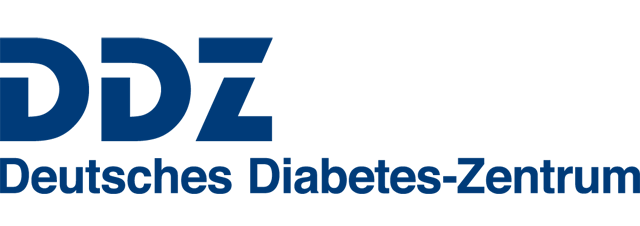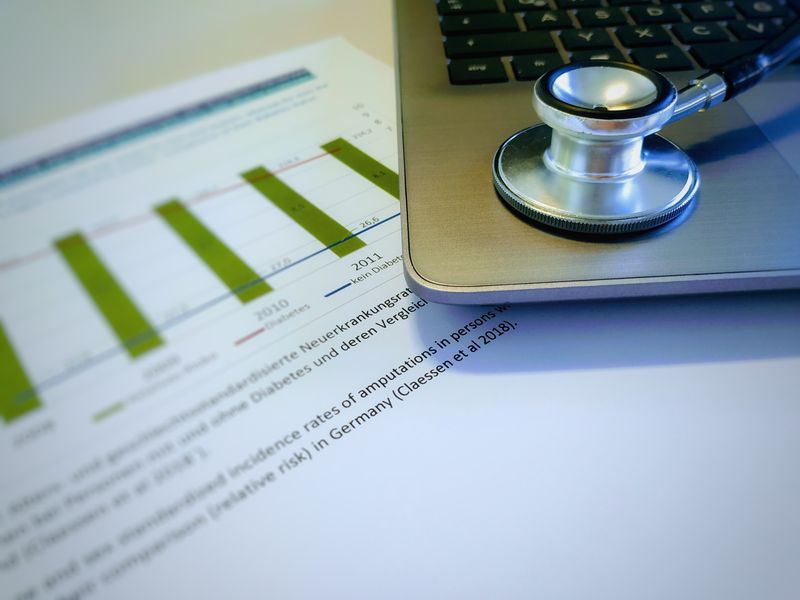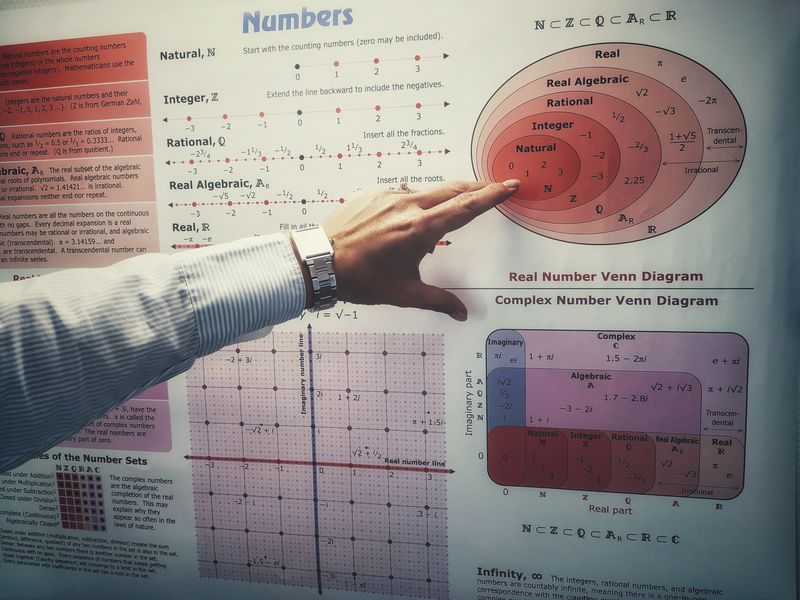Das Institut für Versorgungsforschung und Gesundheitsökonomie untersucht den Bedarf an und die Inanspruchnahme von Versorgungsangeboten, Versorgungsstrukturen und Prozesse sowie deren klinische und Kosten-Effektivität, insbesondere unter Alltagsbedingungen und unter Berücksichtigung von Patientenbedürfnissen und -präferenzen.
Damit trägt es zur Entwicklung, Evaluation und Implementierung zielgerichteter effizienter Interventionen entsprechend den gültigen internationalen Standards bei.
Das IVG gestaltet in Kooperationen mit den anderen Instituten des DDZ, insbesondere mit dem Institut für Klinische Diabetologie, das Forschungsprogramm „Patientenzentrierte Forschung und gesundheitsökonomische Evaluation im Bereich Diabetes mellitus“.
Die Arbeitsgruppen des IVG sind eng miteinander verzahnt. Eine intensive Verbindung besteht zum Institut für Versorgungsforschung und Gesundheitsökonomie im Centre for Health and Society der Medizinischen Fakultät der Heinrich Heine Universität.
Das IVG setzt sich zudem für eine stärkere PatientInnen- und BürgerInnenbeteiligung in der Forschung ein. Das IVG sucht kontinuierlich nach Interessierten, die als Co-Forschende gemeinsam mit WissenschaftlerInnen in Forschungsprojekten zusammenarbeiten. In diesem Kontext wurde auch ein BürgerInnenbeirat gegründet.
Institutsleitung
PatientInnen- und BürgerInnenbeteiligung in der Forschung
Das Institut für Versorgungsforschung und Gesundheitsökonomie sucht nach interessierten PatientInnen und BürgerInnen für kleinere und größere Vorhaben. Aus früheren Projekten wissen wir, dass beide Gruppen wichtige Ideen und Kompetenzen in Forschungsprojekten haben.
Team
-
Dr. PH Sandra Olivia Borgmann, M. Sc.
-
Dr. PH Manuela Brüne, M. A.
-
Stella CaloGastmitarbeiterin (Heinrich-Heine-Universität Düsseldorf)
-
Dr. PH Nadja Chernyak
-
PD Dr. sc. hum. Heiner Claessen, Dipl.-Math. (FH)
-
Alina Clames, M. Sc.
-
Jan Dyczmons, M. Sc.
-
Dr. rer. nat. Veronika Gontscharuk, M. Sc.-Math
-
Gregory Gordon Greiner, MPH
-
Robert Gutu, M. Sc.
-
Paul Hinck, M. Sc.
-
Sophie Janus
-
Univ.-Prof. Dr. rer. pol. Nadja Kairies-SchwarzGastmitarbeiterin (Heinrich-Heine-Universität Düsseldorf)
-
Linda Latsch
-
Dr. Maria Narres, M. Sc. PHGastmitarbeiterin (Heinrich-Heine-Universität Düsseldorf)
-
Dr. rer. nat. Jana Sommer, Dipl.-Psych.Gastmitarbeiterin (Heinrich-Heine-Universität Düsseldorf)
-
Dr. rer. pol. Markus Vomhof, Dipl.-VW
-
Maximilian Zinn, M. Sc.
Ausgewählte Publikationen
- Sommer J, Dyczmons J, Grobosch S, Gontscharuk V, Vomhof M, Roden M, Icks A 2020. Preferences of people with type 2 diabetes for telemedical lifestyle programmes in Germany: protocol of a discrete choice experiment. BMJ Open. 10. https://doi.org/10.1136/bmjopen-2020-036995
- Kvitkina T, Narres M, Claessen H, Metzendorf M-I, Richter B, Icks A 2020. Incidence of stroke in the diabetic compared with the non-diabetic population: a systematic review protocol. Diabetes-Metab Res Rev. 36. https://doi.org/10.1002/dmrr.3311
- Vomhof M 2019. Verbesserung der Adhärenz zur Lebensstiländerung von Menschen mit Diabetes. Der Diabetologe. 15: 542-548. https://doi.org/10.1007/s11428-019-0517-1
- Finner H, Gontscharuk V 2018. Two-sample Kolmogorov-Smirnov type tests revisited: Old and new tests in terms of local levels. Ann Stat. 46: 3014-3037. https://doi.org/10.1214/17-AOS1647
- Lindner LME, Gontscharuk V, Bächle C, Castillo K, Stahl-Pehe A, Tönnies T, Yossa R, Holl RW, Rosenbauer J 2018. Severe hypoglycemia and diabetic ketoacidosis in young persons with preschool onset of type 1 diabetes mellitus: An analysis of three nationwide population-based surveys. Pediatr Diabetes. 19: 713-720. https://doi.org/10.1111/pedi.12628
- Hoffmann J, Haastert B, Brüne M, Kaltheuner M, Begun A, Chernyak N, Icks A 2018. How do patients with diabetes report their comorbidity? Comparison with administrative data Diabetes-related comorbidity in self-reported and administrative data: Comparison with administrative data. Clin Epidemiol. 10: 499-509. https://doi.org/10.2147/CLEP.S135872
- Claessen H, Kvitkina T, Narres M, Trautner C, Zöllner I, Bertram B, Icks A 2018. Markedly Decreasing Incidence of Blindness in People With and Without Diabetes in Southern Germany. Diabetes Care. 41: 478-484. https://doi.org/10.2337/dc17-2031
- Gontscharuk V, Finner H 2018. On the asymptotics of a normal beta-transformed empirical process. J Stat Plan Infer. 193: 103-108. https://doi.org/10.1016/j.jspi.2017.08.006
- Grobosch S, Kuske S, Linnenkamp U, Ernstmann N, Stephan A, Genz J, Begun A, Haastert B, Szendrödi J, Müssig K, Burkart V, Roden M, Icks A for the GDS Group 2018. What information needs do people with recently diagnosed diabetes mellitus have and what are the associated factors? A cross-sectional study in Germany. BMJ Open. 8. https://doi.org/10.1136/bmjopen-2017-017895
- Herder C, Fürstos JF, Nowotny B, Begun A, Strassburger K, Müssig K, Szendroedi J, Icks A, Roden M for the GDS Group 2017. Associations between inflammation-related biomarkers and depressive symptoms in individuals with recently diagnosed type 1 and type 2 diabetes. Brain Behav Immun. 61: 137-145. https://doi.org/10.1016/j.bbi.2016.12.025
Projektförderungen
- Bundesministerium für Gesundheit (BMG)
- Bundesministerium für Bildung und Forschung (BMBF)
- Deutsche Forschungsgemeinschaft (DFG)
- Europäische Union (EU)
- Gemeinsamer Bundesausschuss, Innovationsausschuss (Innovationsfonds)
- Zentralinstitut für die kassenärztliche Versorgung (Zi)
Lehrtätigkeiten
Lehre im Rahmen des Medizinstudiums:
Das IVG vertritt im Modellstudiengang der Heinrich-Heine-Universität den Querschnittsbereich Gesundheitssystem, öffentliche Gesundheitspflege und Gesundheitsökonomie. Es ist damit in folgenden Blöcken vertreten:
- *Medizin, Mensch und Gesellschaft (1. Studienjahr)
- *Klinisches Denken und Handeln in Diagnostik und Therapie (3. Studienjahr)
- *Bewegungsapparat (4. Studienjahr)
- *Mensch und Umwelt (5. Studienjahr)
Forschungsseminar: Versorgungsforschung Doktorandenkolloquium
Lehre in Kooperation mit der Wirtschaftswissenschaftlichen Fakultät
- Verschiedene fakultätsübergreifende kooperative Lehrangebote im Public Health Studiengang und im Bachelorstudiengang VWL
Lehre im Public Health Weiterbildungsstudiengang
- Public Health Einführung: Ideen, Geschichte, Methoden
- Einführung in die gesundheitsökonomische Evaluation und Bewertung von Gesundheitstechnologien
- Einführung in die Gesundheitssystem- und Versorgungsforschung
- Gesundheitsökonomische Evaluation
- Verfassen wissenschaftlicher Arbeiten
- Forschungskolloquium: Aktuelle Public Health-Forschung
- Masterkolloquium
Doktorandenkolleg
Instrumente
In der Gruppe werden Instrumente für patientenrelevante Parameter entwickelt (in deutscher und englischer Sprache).
Fragebogen zum diabetesbezogenen Zeitaufwand von Patienten (deutsch)
Questionnaire_Health and health care use (english)
Fragebogen zur Inanspruchnahme medizinischer Versorgung (deutsch)
Questionnaire Medication (english)
Fragebogen zu Informationsbedürfnissen von Patienten mit Diabetes (deutsch)
Questionnaire_Health and health care use (english)
Publikationen zur Entwicklung, Testung und/oder Anwendung der Instrumente:
- Chernyak N, Jülich F, Kasperidus J, Stephan A, Begun A, Kaltheuner M, Icks A. Time cost of diabetes: Development of a questionnaire to assess time spent on diabetes self-care. Journal of Diabetes and it‘s Complications 2017; 31(1):260-266.
- Chernyak N, Ernsting C, Icks A. Pre-test of questions on health-related resource use and expenditure, using behaviour coding and cognitive interviewing techniques. BMC Health Serv. Res. 2012, 12(1),303.
- Hoffmann J, Haastert B, Brüne M, Kaltheuner M, Begun A, Chernyak N, Icks A. How do patients with diabetes report their comorbidity? Comparison with administrative data. Clinical Epidemiology 2017; 10: 499-509.
- Icks A, Dittrich A, Brüne M, Kuss O, Hoyer A, Haastert B, Begun A, Andrich S, Hoffmann J, Kaltheuner M, Chernyak C. Agreement found between self-reported and health insurance data on physician visits comparing different recall lengths. Journal of Clinical Epidemiology 2016 (Epub ahead of print).
- Chernyak N, Stephan A, Bächle C, Genz J, Jülich F, Icks A. Assessment of information needs in diabetes: Development and evaluation of a questionnaire. Prim Care Diabetes 2016; 10(4):287-92
Ausgewählte Aktivitäten
Das IVG ist national und international in Arbeitsgruppen, Veranstaltungen zur Förderung des wissenschaftlichen Nachwuchses etc. aktiv.
Mt Hood Meeting
The Mount Hood Diabetes Challenge Network is dedicated to promote an exchange of ideas and information between those developing and using health economic diabetes simulation models. It has run a diabetes computer simulation modelling conference bi-annually since 1999. A major focus point of the conferences is the comparisons of health economic diabetes models both in terms of their structure and performance.
In 2018, the Mt Hood Meeting was hosted by researchers of the ISE at the German Diabetes Center (DDZ)
Link: https://www.mthooddiabeteschallenge.com/conference
Workshop for Early Career Investigators in the Field of Health Services Research
4th Workshop for Early Career Investigators in the field of Health Services Research in Düsseldorf at the Centre for Health and Society at Heinrich Heine University
In 2017/2018 the fourth Workshop for early career investigators “Health Services Research” established by the DFG (Deutsche Forschungsgemeinschaft) took place at the German Diabetes Center in Düsseldorf. The Workshop for Early Career Investigators was hosted by the Centre for Health and Society (chs) at the Heinrich Heine University in cooperation with the Center for Health Services Research of the University of Cologne (ZVFK), the Interdisciplinary Center for Health Services Research (IZVF) of the University of Witten/Herdecke, the Research Centre for Health Communication and Health Services Research at the University of Bonn, and the Institute for Health Services Research and Clinical Epidemiology of the University of Marburg.
The aim of health services research is to explore the daily routine of health care, to improve processes and to help ensure that suitable offers are made for all patients.
The workshop gives outstanding early career investigators in this field the opportunity to develop innovative project ideas and research projects.
In July 2019, the first alumni meeting of the DFG Early Career Investigators in the field of Health Services Research took place at the German Diabetes Centre Düsseldorf, also organized by ISE, the Centre for Health and Society of the HHU and other university partners. The alumni had the opportunity to deepen the contacts they had previously made, to exchange ideas with experienced researchers and thus to give further inspiration. The highlight was the keynote lecture by Prof. Sharon Simpson and Prof. Laurence Moore, University of Glasgow, on updating the Medical Research Council's framework for developing and evaluating complex interventions. Additionally, parts of the framework were discussed in an interactive project workshop.
On August 30 and September 1, 2020, the second alumni meeting of the DFG Early Career Investigators in the field of Health Services Research took place - this time with alumni from the third and fourth Early Career Investigators Academy. After a social evening, the main day was dedicated to scientific exchange among the alumni, scientists from the institutes coordinating the Early Career Investigators Academy and the mentors of the Early Career Investigators Academy – of course all under corona conditions. Prof. Rik Cruitzen, CAPHRI Institute of the University of Maastricht, gave a lecture on the topic of health promotion, followed by an interactive workshop with the alumni. In the concluding discussion, the next alumni meeting was announced for summer 2021 - it is intended that all four junior academies will then meet.
EASD
EASD Study Group Health Services Research and Health Economics
Beim 55. Kongress der “European Association for the Study of Diabetes e.V.” (EASD) in Barcelona, fand das zweite Meeting der Study Group “Health Services Research and Health Economics” statt. Die Study Group wurde 2018 vom IVG unter der Leitung von Professor Dr. Dr. Icks initiiert und wird vom Team des IVG koordiniert.
Trotz der hohen Bedeutung für die Diabetesforschung gab es in der EASD bis 2018 keine Arbeitsgruppe, die sich mit Themen der Versorgungforschung oder der Gesundheitsökonomie beschäftigt. Ziel der Gruppe ist es, bestehende Forschungsaktivitäten zu bündeln, auszubauen und weiterzuentwickeln. Dabei geht es z.B. um patientenzentrierte Versorgung und im speziellen um Patientenpräferenzen in der Diabetesbehandlung. Ein weiteres zentrales Arbeitsfeld sind gesundheitsökonomische Modelle zu Komplikationen des Diabetes. Die EASD Study Group soll eine Austauschplattform für Kliniker, Wissenschaftler unterschiedlicher Fachgebiete (Gesundheitsökonomie, Versorgungsforschung, Epidemiologie) und zukünftig auch Patienten bilden.



